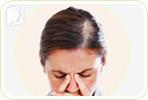Hair loss is a frustrating part of aging that affects nearly everyone. Several factors accelerate hair loss, such as stress, hormone fluctuations, vitamin deficiency, harsh chemical treatments, and frequent styling using hot tools. It's important to take care of your hair and live a healthy lifestyle in order to prevent hair loss. There are several ways to prevent hair loss, including eating nutrient-rich foods, exercising regularly, balancing hormone levels, and reducing stress. Biotin is a beneficial vitamin for hair loss, helping metabolize fatty acids, carbohydrates, and proteins.
How Does Biotin Work?
Biotin, also known as vitamin H or vitamin B7, is a type of B-complex vitamin that is essential in energy production and the metabolism of proteins, fats, and carbohydrates. Biotin promotes healthy hair growth and prevents hair from drying out. Biotin increases the elasticity of hair - which prevents and minimizes hair breakage and helps strengthen and thicken hair. Biotin also encourages growth of hair and skin cells.
There isn't enough evidence to rate biotin's effectiveness in treatment of hair loss. However, as a biotin deficiency and contribute to hair thinning and baldness, eliminating the deficiency can help treat hair loss in some cases.
How to Consume More Biotin
Biotin deficiencies are uncommon, but they do occur, especially in people with nutrient absorption problems or who drink excessive amounts of alcohol. Hair loss is a common symptom of biotin deficiency. Fortunately, biotin is available in many different forms.
Biotin supplements - including certain B-complex vitamins - are a beneficial way of incorporating biotin into your diet. Appropriate dosing depends largely on age and weight, but the general recommend dose of biotin is approximately 30 mcg for adults.
There are also biotin shampoos that can help promote hair growth. Biotin is found naturally in a number of foods, including eggs, whole grains, chicken, salmon, and bananas.
Hair Loss: When to See a Doctor
If your hair is falling out at an alarming rate, especially if it's premature, it may be time to see a doctor. As previously stated, things like stress, hormone fluctuations, and harsh hair treatments accelerate hair loss. Seeing a doctor is also recommended before starting a biotin supplement regimen in order to determine a proper and safe dosage.
Hair loss is unfortunately a natural part of aging, and can be accelerated by things like excessive stress and vitamin deficiencies. However, there are several ways to help prevent hair loss by strengthening hair and stimulating growth. Eating biotin-rich foods or taking biotin supplements can be helpful in strengthening hair to prevent loss. Additional natural hair loss prevention methods include consuming a balanced diet, reducing stress, and staying hydrated. These hair loss prevention tips are natural, cost-effective, and can easily be done at home.
Sources
- National Institutes of Health. (2014). Hair Loss. Retrieved October 17, 2014, from http://www.nlm.nih.gov/medlineplus/hairloss.html
- Office on Women's Health. (2008). Skin and Hair Health. In: The Healthy Woman: A Complete Guide for All Ages. Retrieved from http://www.womenshealth.gov/publications/our-publications/the-healthy-woman/skin_hair.pdf
- University of Maryland Medical Center. (2011). University of Maryland. (2013). Vitamin H (Biotin). Retrieved October 17, 2014, from http://umm.edu/health/medical/altmed/supplement/vitamin-h-biotin




